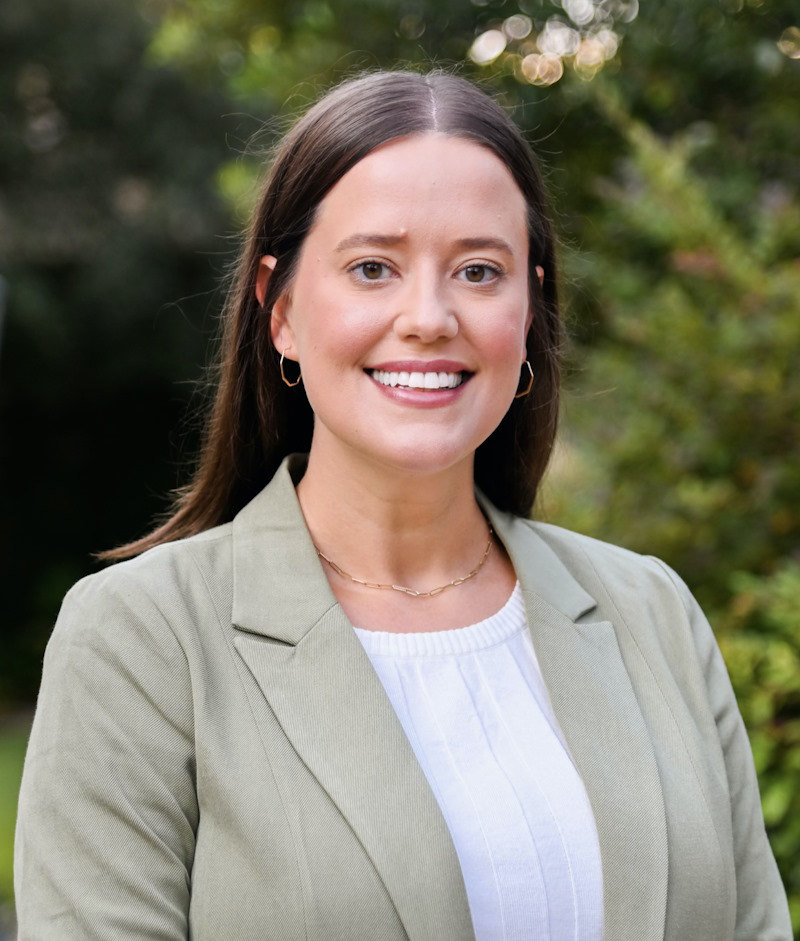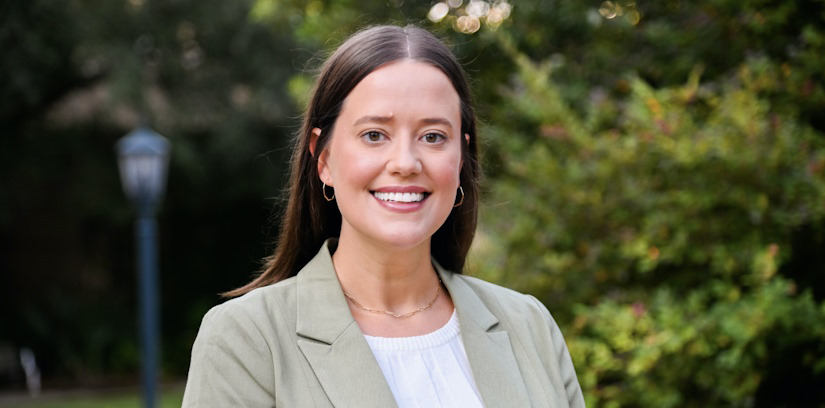October 4, 2024 | Erin Bluvas, bluvase@sc.edu
Danielle Krobath’s goal is to prevent and eliminate nutrition-related chronic disease disparities among children and families, and she’s adopted a very broad lens to guide her approach. The assistant professor of epidemiology uses community-centered methods (think: community advisory boards comprised by key stakeholder groups and individuals with lived experience) to examine the impact of discriminatory policies, systems and environments on cardiometabolic health inequities.
“There are many intersecting, complex forms of social oppression in the U.S. that negatively affect the health of children and families, which requires multifaceted, community-driven solutions,” Krobath says. “As a faculty member with the second cohort of the FIRST FIIRRE program, I’m also excited to join a school whose faculty share a strong commitment to inclusive excellence and am eager to work with the FIIRRE team to contribute towards ongoing efforts to remove barriers for first generation and historically marginalized scholars to enter and succeed in academia – from the student level to the professorial level and beyond.”
Krobath’s passion for the field began when she was working as an early childhood educator and witnessed firsthand how social determinants – such as household income, social class, and interpersonal microaggressions – influenced educational outcomes as well as behavior and development. She was also baffled by the unhealthy food that was served to children throughout the day given the direct impact of nutrition on health and well-being.
Motivated to address these problems, Krobath enrolled at the University of Massachusetts Boston to pursue a bachelor’s degree in social psychology. Her earliest exposure to research was as an undergraduate research assistant conducting in-depth interviews with four-to-eight-year-old children about their perceptions of upwards mobility and social inequality, and she realized almost immediately that the discriminatory beliefs society holds about people in poverty begin early in life.
The next eight years saw Krobath at Tufts University – first earning master’s (food policy and applied nutrition) and doctoral (food and nutrition policy and programs) degrees and then completing postdoctoral training. As a graduate research assistant with ChildObesity180, an initiative aimed at reversing the childhood obesity epidemic, she learned about ways to improve nutritional health outcomes in youth through community-engaged research. Her two years as a postdoctoral research fellow gave her additional training in these methods, expanding her focus on racism and discrimination as causal determinants of health.
“My development as a scientist has always relied on interdisciplinary, cross-institute collaborations, including my postdoctoral training at Tufts with extensive input from leaders at NYU’s Center for Antiracism, Social Justice, and Public Health,” Krobath says. With this approach in mind, she brought two projects with her when she joined the Department of Epidemiology and Biostatistics this fall.

The first study, funded by the Robert Wood John Foundation’s Healthy Eating Research program, aims to maximize participation in the Women, Infants, and Children (WIC) Program by quantifying WIC coverage rates by racial and ethnic group at the county-level, estimating the influence of structural racism (e.g., residential racial segregation) on any disparities revealed, and conducting key informant interviews with state agency partners to understand organizational barriers and facilitators of equitable coverage in WIC. Comprised of state agency directors, epidemiologists, and data managers from seven states, a community advisory board helps guide the project, disseminate the findings back to communities, and communicate with local, state, and national policymakers to ensure the work will have real-world impact.
Supported by the NIDDK-funded Washington University Center for Diabetes Translation Research, Krobath’s other project examines the relationship between racism and health behaviors on the risk of type 2 diabetes among a nationally representative cohort of adolescents in the U.S. This pilot and feasibility study is a partnership between USC, Tufts University, and the Council on Black Health with the goal of understanding how environmental and behavioral mechanisms interact with interpersonal and structural racism exposure to disproportionately increase the risk of type 2 diabetes in youth.
The project has a translational science focus, which will culminate in a planned symposium in Winter 2025 that aims to bring together public health students, early career investigators, and senior scientists across disciplines to build capacity for rigorous research and training linking racism and discrimination with diabetes and other nutrition-related chronic disease disparities.
“Based on the research studies that Dr. Krobath is already leading, she clearly represents a new generation of public health scholar who is exceptionally well-equipped to not only identify but to lead the work to eliminate health inequities, including at the policy level,” says Anthony Alberg, chair of the department of epidemiology and biostatistics, “Her skill set adds a new dimension to our department, enriching us greatly.”
